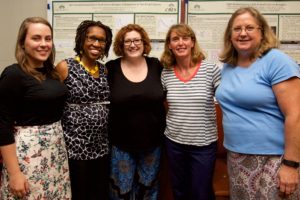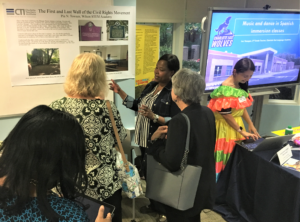Barbara Lom, Biology, Davidson College
The benefits of physical activity on physical health have long been recognized. As examples, we know that exercise is good for the heart, for muscular strength and for preventing metabolic conditions. In recent years, however, the benefits of exercise have expanded. Neuroscientists, educators and clinicians have demonstrated that physical activity also benefits the brain. A large and rapidly expanding body of scientific literature now reveals that physical activity can also exert powerful effects on neurons, the brain and behavior throughout a person’s lifespan. This CTI seminar will investigate ways physical activity influences the brain through molecular, cellular and behavioral perspectives. We will examine basic, clinical and applied research investigating how exercise may facilitate attention, memory and learning, with special attention to research relevant to K-12 students and educational practices. We will also consider how physical activity has been used as part of treatment plans for neurological conditions such as depression, anxiety, addiction and aging. Seminar Fellows will gain a deeper understanding brain function and development. They will explore neuroscience in contexts that are most meaningful to their own students, experiences, curricula and intellectual interests. For example, Fellows might develop curriculum units on a wide array of topics such as: how the brain makes new neurons in response to exercise, how physical fitness scores correlate with reading or math performance, how the body and mind are connected, or how the body’s physiological responses to stress can be modulated by exercise. Other Fellows might develop more applied curriculum units that apply the knowledge from the neuroscience of exercise by strategically deploying movement to enhance learning in their classrooms.
Anchor book: Spark: The Revolutionary New Science of Exercise and the Brain by Ratey & Hagerman supplemented with readings from popular press and journal articles.
Explore curriculum units developed by Fellows in this seminar here.























 Home
Home